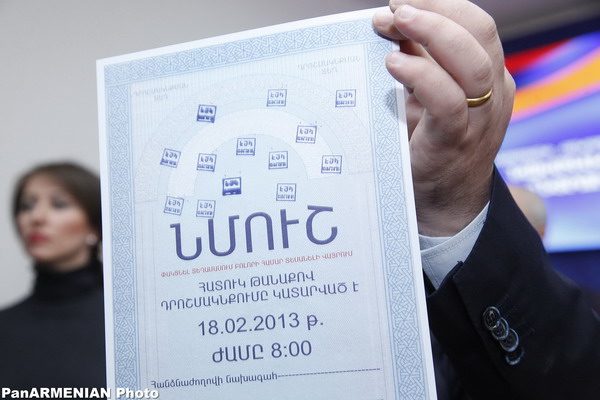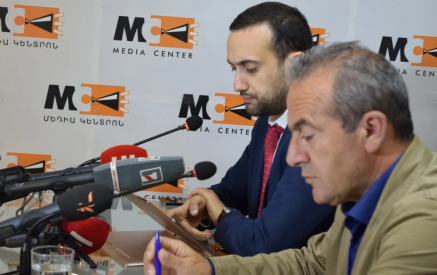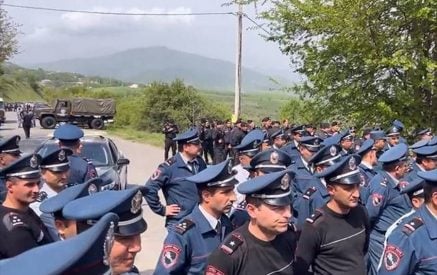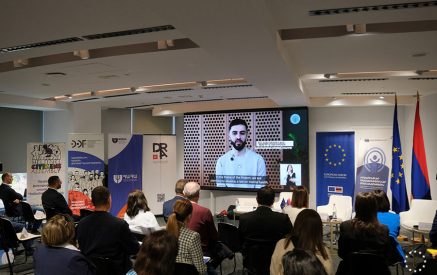The OSCE/ODIHR observation mission has published its final report on the election. In the section of the report called “Priority Recommendations,” it is mentioned that the authorities should take measures to increase public trust in elections. Then the following observation is made in the report: “The fundamental freedoms were generally respected and all contestants campaigned without hindrance, but the OSCE/ODIHR EOM [Election Observation Mission] noted a lack of impartiality of the public administration and abuse of administrative resources in favor of the incumbent. This calls into question the separation of State and political party, as called for in paragraph 5.4 of the 1990 OSCE Copenhagen Document.” The Helsinki Citizens’ Assembly Vanadzor Office also carried out a monitoring mission during the presidential election. www.aravot.am inquired of Artur Sakunts, the manager of the office, how he would describe the report and whether the objective reality was reflected in it. He replied: “The main points of the report and our observations lead to the Achilles heel of the Armenian electoral system. That is the very use of administrative resources. Those are not individual cases, but the whole electoral process is organized and carried out by the ruling political force with the use of administrative resources. The Copenhagen Document clearly requires separation of the state and political party. The Document was adopted after the collapse of the Soviet system. However, the problems haven’t been solved in the past 20 years. Basically, there have been two ruling political forces, the Pan-Armenian National Movement (PANM) and the Republican Party of Armenia (RPA). I don’t mention the other parties that would join the ruling party as satellites from time to time and form artificial coalitions. And the RPA has used the administrative and financial resources at all elections since 1998.
“One cannot tell the difference between the party money and the government money; they exploit transport, human resources.” We inquired whether the government of the Republic of Armenia showed political will to solve those problems. Our interlocutor replied: “I don’t see that will. Business and government are so intertwined that only the one who has power or is sponsored by the government can be successful in business. I don’t have any evidence that the government takes steps to separate business interests from government functions. Khachatur Sukiasyan once tried to take an attitude that differed from the government’s approach and was severely punished. He hasn’t recovered his business as yet; instead, another businessman, Ruben Hayrapetyan, enjoys the government’s unequivocal sponsorship.” Sona Ayvazyan, the deputy director of the Transparency International Anticorruption Center, noted that the report had raised quite important issues; it had particularly emphasized society’s distrust of electoral processes, in particular the abuse of the administrative resource and power, inefficient investigation by law-enforcement bodies, fusion of the party and state, which have a great impact on elections.
A. Ayvazyan clarified: “Based on those observations, the report also made important recommendations, which, I hope, will be paid heed to and will lead to proper steps. Mentioning society’s distrust, the issue of making voter registration lists public, which the Venice Commission doesn’t consider a good method, is mentioned in the report as a possibility to overcome it. At the moment, we don’t see will on the part of the government to solve the problems, but as a result of the recommendations and consistency of international organizations some changes will be made in electoral processes, the Electoral Code. We should also be consistent. If we wanted the report to state like us that the election was disgraceful, it wouldn’t have happened, since those are reports of diplomatic missions, and they will never use that language. It was mentioned in the report that the election was generally well-organized. They don’t change their assessment, but they raise important issues that urge the country to make appropriate changes in the legislation and electoral practice, in order to organize free and fair elections.”
Tatev HARUTYUNYAN























































